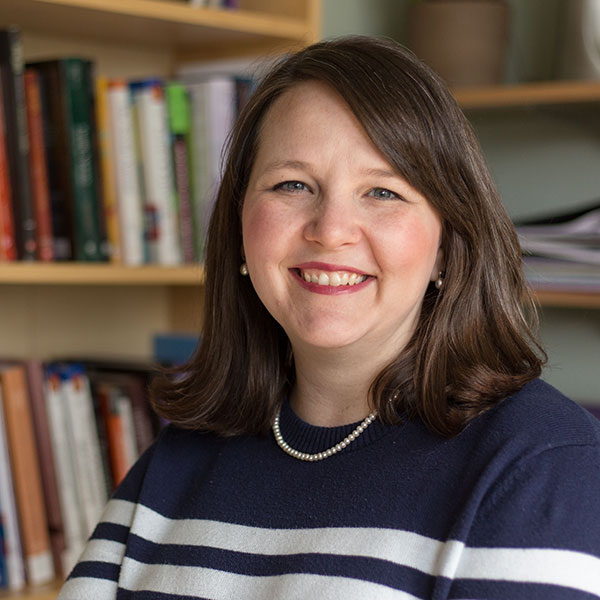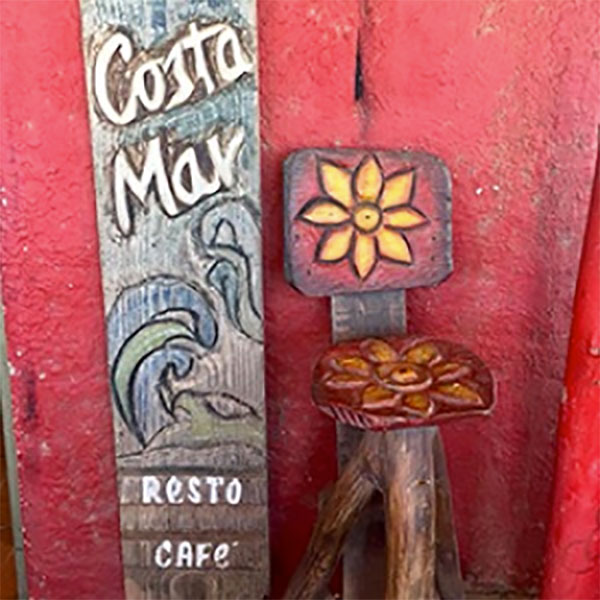
Michelle Ceynar was the first in her family to attend college, and now she’s a professor of psychology at Pacific Lutheran University.
And for her, the two identities — a first-generation graduate and a woman in academia — intersect, especially when it comes to hard work.
“I always have done what I’ve needed to do,” Ceynar said. “I think that comes from growing up in a blue-collar kind of background.”
The same approach applies for female faculty members: “We just kind of do what we feel like we need to do to get good teaching evaluations, and do what we think students are expecting and what is expected of us.”
But Ceynar says a frustrating feeling results from this level of accommodation — especially after realizing some of her colleagues aren’t approaching their work in quite the same way.
“You see that people have other ways of doing it and you never thought to ask or you didn’t realize that somebody else knew a different way,” Ceynar said.
Her experience as a first-generation college student uncovered similar feelings of unfamiliarity.
Ceynar was always college bound; her mom made sure of it. It wasn’t until graduate school that Ceynar sensed that other people knew things she didn’t.
“I began to realize that a lot of these other grad students had a different sense of how to do this stuff than I did and I was still too afraid to ask at that point,” she said. “I’ve also felt that as a faculty member, and I’ve got a lot of colleagues whose parents went to college and grew up around colleges and they know things that I don’t know about sabbaticals, for example.”
The sense of her personal unknowns has spurred curiosity in her professional life, extending to her most recent research. Ceynar is keenly interested in the ways female professors are treated differently in academia. Ceynar’s recent research focuses on how female professors face different expectations from students, compared to their male counterparts. Ceynar partnered with researchers from Eastern Washington University and Bridgewater State University in Massachusetts.
“We realized that there are lots of subtle things that women end up having to deal with that we don’t think our male colleagues do,” Ceynar said.
Those differences include students repeatedly asking for extensions on papers, students sharing deep personal stories, or comments from students about female professors’ attire or age.
Ceynar and her research partners sent out a survey to professors around the country and measured the results against a scale that calculates emotional labor — the process of managing emotions to satisfy requirements of a job — in the workforce.
Ceynar noted that the study was informed by the researchers’ personal experiences, too.
“So when we started sharing some of the ways we had been disrespected and feeling like it had been gendered in some way, we started adding those things into our survey,” she said.
They found that students more often display friendship behaviors with their female professors. For example, a female professor having to assign a bad grade to a student who just told her about a death in the family may be challenging to negotiate for the faculty member.
“They kind of expect a little more sympathy because you’re a woman and you’re supposed to be nurturing and all of that,” Ceynar said. “Students tend to be more angry at women when they don’t bend the rules or give good grades.”
This phenomenon also is called “academic momism.”
“It’s not that we don’t like getting to know our students or have close relationships with them,” Ceynar said, “it’s just this kind of assumption that we are going to be nicer, or softer, or grade less harshly.”
The results came as a sort of relief for Ceynar, who has been teaching for more than 20 years, 17 of them at PLU. “We are not just imagining things,” she said. “This is an experience that women are having all over the place.”
Ceynar and her colleagues also surveyed students about their behavior related to academic entitlement. Her research partner Amani El-Alayli asked students to review a syllabus and then asked if they would request an extension on assignments. The findings showed that students asked for extensions from female professors more often than their male counterparts.
This is just the latest research for Ceynar, who has been interested in the use of formal titles by female faculty members and gender for a long time. Ceynar’s graduate school mentor — who was the only female professor in the psychology department at the University of Montana in the 1960s — made Ceynar promise to always use her title.
“I always have done what I’ve needed to do. I think that comes from growing up in a blue-collar kind of background.”
– Michelle Ceynar
“At the time, the department chair would send out mail to the department, hard copy mail in the 60s, and it would say ‘Dr. Walsh’ and ‘Dr. so-and-so’ and then it would be ‘Miss Hill,’” Ceynar said. “And she made me promise that I would continue to use my title once I graduated because it was so important to her.”
The next step in Ceynar’s research will include partnering with female professors in the natural sciences to study how student expectations of professors vary by discipline and gender. This is a growing research field, with more studies on the extra burdens students place on faculty of color, as well.
One way Ceynar hopes to help change the way students treat their female professors is by sharing these findings with them. Traditional formalities are changing, and titles are not always made clear to students, and for students just out of high school their expectations of professors can be different.
“I don’t think that students are trying to be disrespectful at all,” Ceynar said. “I think a lot of it is just subtle and implicit. And so kind of bringing that out and letting people know, I think that makes a difference.”
Pulling back the curtain on gender in the classroom is one solution. And for first-generation students, Ceynar has an added piece of advice. “First-gen students just kind of plow through and make it what they can make it,” she said. “So advice would be to not be afraid to ask people questions.”





